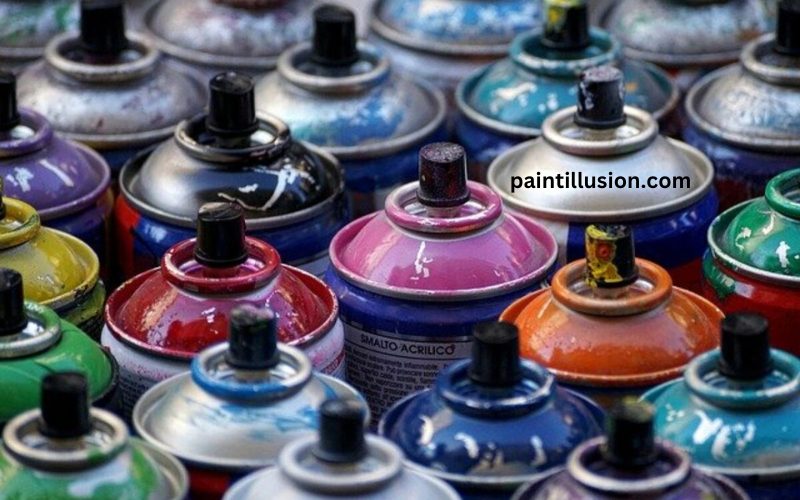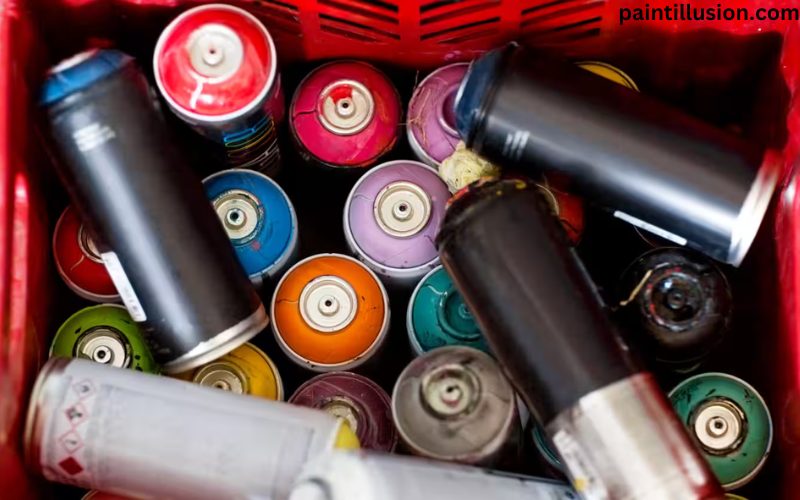Spray paint can be a versatile tool for artists, DIY enthusiasts, and homeowners looking to spruce up their living spaces. However, when it comes time to dispose of spray paint cans, it’s important to do so properly to protect the environment and comply with legal regulations. In this article, we will explore the reasons why proper disposal is important, the environmental impact of improper disposal, legal regulations and guidelines, safe methods for disposal, recycling options, tips for handling spray paint safely, alternatives to traditional spray paint, common mistakes to avoid, and conclude with a summary of key takeaways.
Introduction to Spray Paint Disposal
Spray paint is commonly used for a variety of projects, from painting furniture to creating artwork. However, many people are unaware of the proper methods for disposing of spray paint cans once they are empty or no longer needed. Improper disposal can have serious consequences for the environment and human health. By following the correct disposal procedures, you can help minimize these risks and ensure that spray paint is disposed of safely and responsibly.
Why is Proper Disposal Important?
Proper disposal of spray paint is crucial for several reasons. First and foremost, it helps protect the environment. Spray paint cans contain harmful chemicals that can leach into the soil and water if not disposed of correctly. These chemicals can contaminate groundwater, harm wildlife, and disrupt ecosystems. Additionally, improper disposal can pose health risks to humans. Inhalation of spray paint fumes or contact with the chemicals can lead to respiratory problems, skin irritation, and other health issues. By disposing of spray paint properly, you are taking steps to safeguard both the environment and your own well-being.
Environmental Impact of Improper Spray Paint Disposal
When spray paint cans are not disposed of properly, they can have a significant negative impact on the environment. The chemicals present in spray paint, such as volatile organic compounds (VOCs), can contribute to air pollution and the formation of smog. This pollution can have wide-ranging effects, including respiratory problems, reduced visibility, and damage to plants and animals. When spray paint cans are thrown in regular trash bins or left in landfills, the chemicals can seep into the soil and contaminate groundwater, which can have long-term effects on local ecosystems. By disposing of spray paint cans correctly, you can help minimize these environmental hazards.

Legal Regulations and Guidelines for Spray Paint Disposal
Due to the potential dangers associated with spray paint, there are legal regulations and guidelines in place for its proper disposal. These regulations vary by jurisdiction, so it is important to familiarize yourself with the specific rules in your area. In general, spray paint cans are considered hazardous waste and should not be disposed of in regular household trash. Instead, they should be taken to designated collection sites or recycling centers. Some local governments offer special collection events or programs for hazardous waste disposal. It is important to follow these regulations to avoid fines or other legal consequences.
Safe and Responsible Methods for Disposing of Spray Paint
When it comes to disposing of spray paint, there are several safe and responsible methods to consider. One option is to use up the entire can before disposing of it. This not only reduces waste but also minimizes the risks associated with storing partially filled cans. If you have a small amount of spray paint left in the can, consider using it for touch-ups or smaller projects. Another method is to donate or give away unused spray paint to someone who can use it. This not only prevents waste but also allows others to benefit from the product. If these options are not feasible, the next step is to properly dispose of the spray paint can.
Recycling Options for Spray Paint Cans
Recycling is an excellent option for disposing of spray paint cans in an environmentally friendly way. Many recycling centers accept empty spray paint cans, but it is important to check with your local facility to ensure they are equipped to handle this type of waste. Empty cans should be free of any remaining paint, and the plastic cap should be removed if possible. Some recycling centers may require you to puncture the can to release any remaining pressure. It is important to follow their guidelines to ensure proper disposal. By recycling spray paint cans, you are helping to conserve resources and reduce the environmental impact of this type of waste.
Tips for Storing and Handling Spray Paint Safely
Proper storage and handling of spray paint is essential for both safety and longevity. Here are some tips to keep in mind:
- Store spray paint cans in a cool, dry place away from heat sources and open flames.
- Keep cans out of reach of children and pets to prevent accidental ingestion or misuse.
- Always use spray paint in a well-ventilated area to minimize exposure to fumes.
- Wear protective clothing, such as gloves and a mask, when using spray paint to protect your skin and respiratory system.
- Follow the manufacturer’s instructions for proper use and disposal of spray paint.
Alternatives to Traditional Spray Paint
If you are concerned about the environmental impact of traditional spray paint, there are alternative options available. Water-based spray paints, for example, contain fewer harmful chemicals and are considered more environmentally friendly. These paints are often labeled as low VOC or zero VOC. Another alternative is to use brush-on paint instead of spray paint. While this method may require more time and effort, it eliminates the need for aerosol cans and reduces waste. Exploring these alternatives can help you make more sustainable choices for your painting projects.
Common Mistakes to Avoid When Disposing of Spray Paint
When it comes to disposing of spray paint, there are some common mistakes that should be avoided. One mistake is throwing empty spray paint cans in the regular trash. As mentioned earlier, spray paint cans are considered hazardous waste and should not be disposed of in this manner. Another mistake is pouring leftover paint down the drain or in the trash. This can lead to water pollution and harm the environment. It is important to follow the proper disposal methods outlined earlier to avoid these mistakes and ensure the safe and responsible disposal of spray paint.
Conclusion
Proper disposal of spray paint is essential for protecting the environment and complying with legal regulations. By following the guidelines outlined in this article, you can ensure that spray paint is disposed of safely and responsibly. Remember to check the regulations in your area and take advantage of recycling options whenever possible. By making informed choices and avoiding common mistakes, you can minimize the environmental impact of spray paint and contribute to a cleaner, healthier planet.

